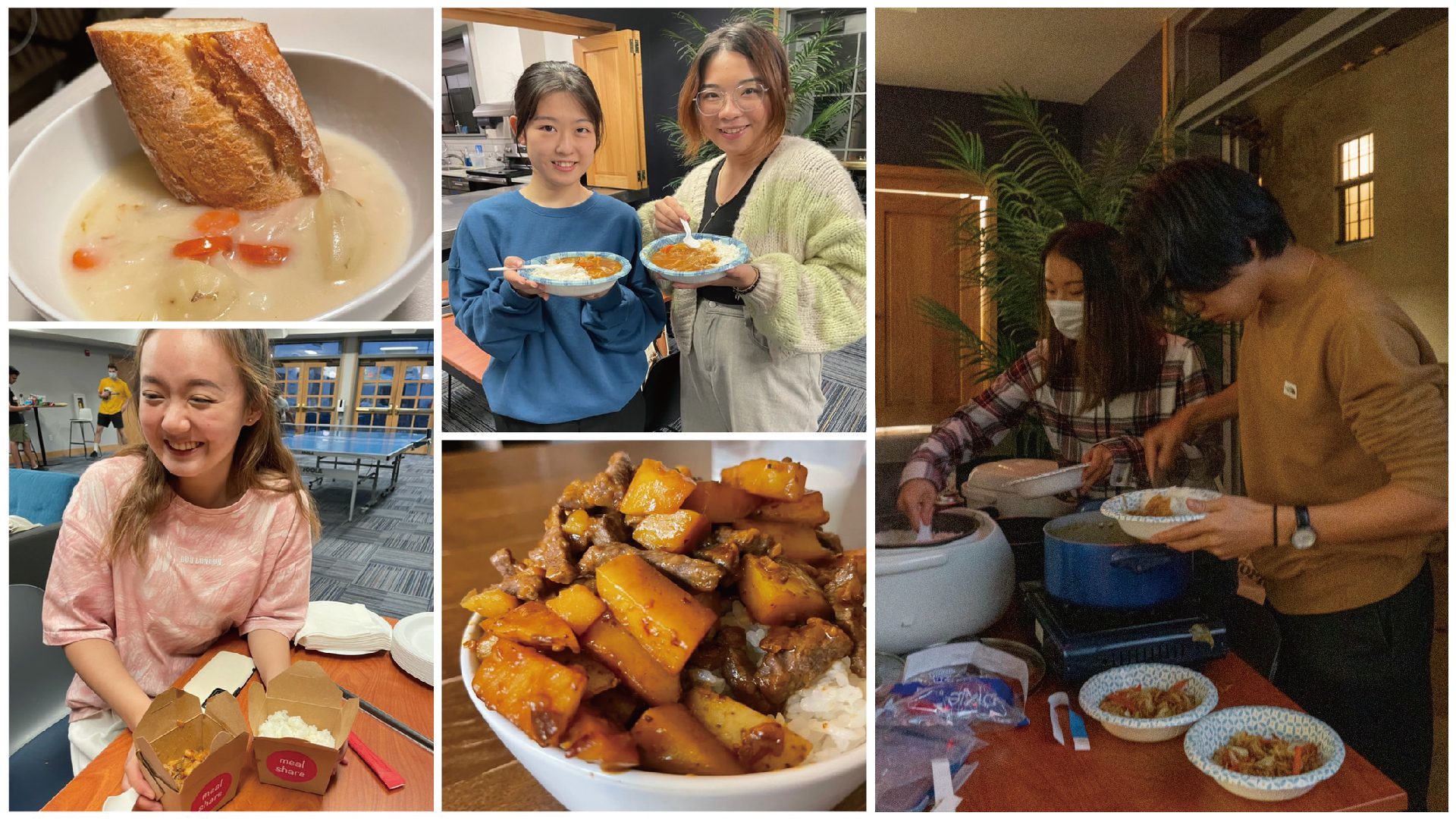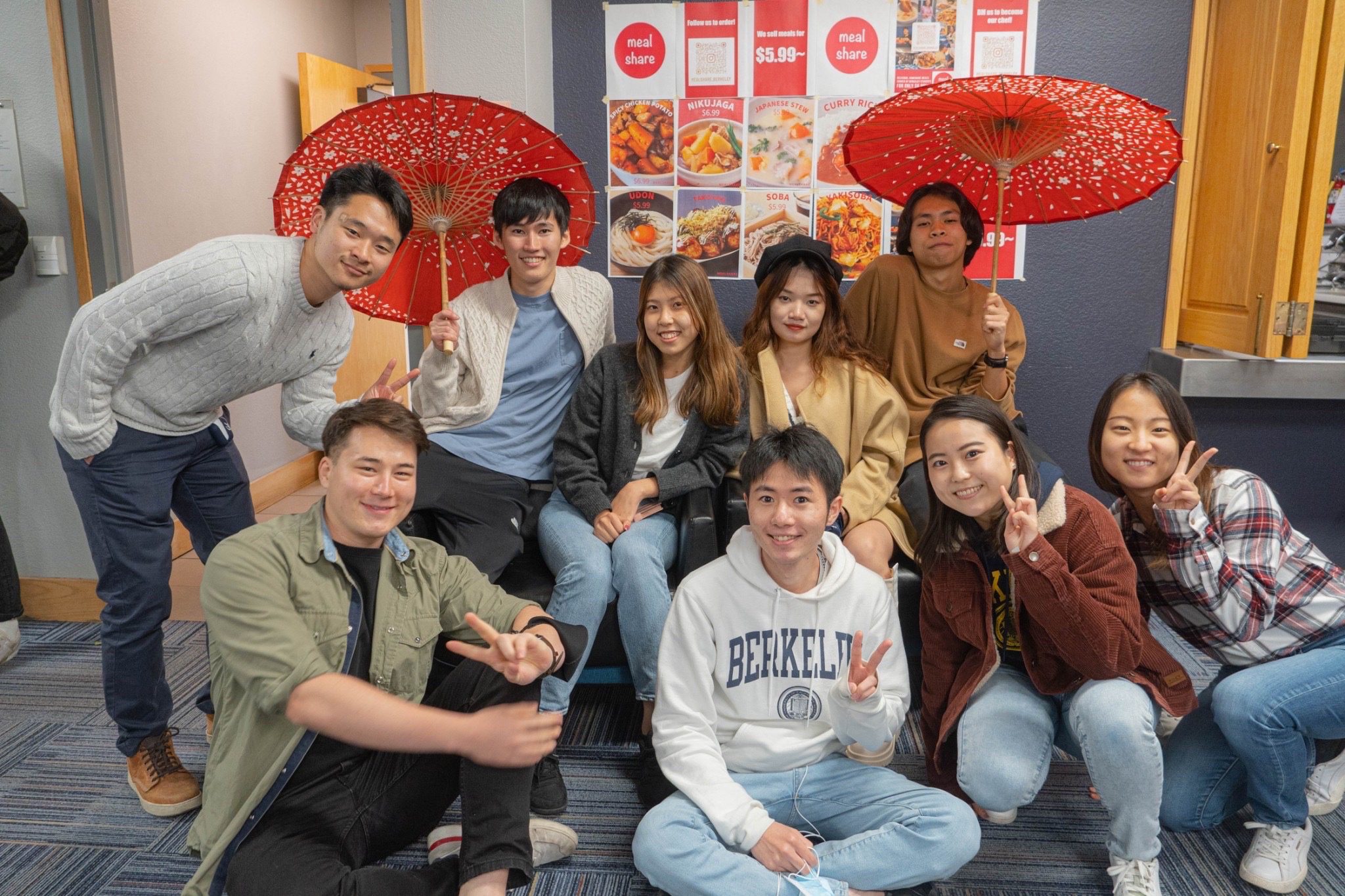Humans of Haas: Rioko Enomoto
Rioko Enomoto is a one year Haas exchange student from Waseda University, Japan. Majoring in Economics, she gradually found interests in business and decided to join the Berkeley Haas Global Access Program (BHGAP) for more knowledge and experience. When being asked about her passion in business, she immediately answered: entrepreneurship. “I like developing innovative ideas from scratch and collaborating with people. Collaborating is my favorite part in entrepreneurship. There are always surprises when interacting with customers, co-founders, and partners. Also, I believe having my own startup is more free than working in other companies,” she said. Throughout the interview, Rioko talked about her entrepreneurial journey in Haas and shared some accessible resources that supported her along the way. For those also interested in entrepreneurship, hope you enjoy this article and find it not only fun but useful!

What’s the biggest difference you find between Haas and your home University?
The class setup is really different. In Japan, I used to take big classes that accommodated more than 100 students. There, we simply listened to lectures and seldom spoke up in class. But in Haas, most classes are small, like 20-40 people, so it’s more interactive. We can ask questions at any time. Also, it’s not just the professor talking. The discussion is everywhere between students and students, or students and professors. This mode of teaching and learning is beneficial in acquiring entrepreneurship knowledge since everyone has different perspectives. Sometimes they might bring up a perspective that you’d never thought of. For example, in my UGBA 295.C “295C. Opportunity Recognition: Technology and Entrepreneurship in Silicon Valley” class, the professor talked about how to make profit and succeed in Silicon Valley. Nevertheless, one student asked, “Is it a good thing just to pursue the profits? Is it happy to do so?” The question was refreshing and inspiring to the class, because at that time, all of us were digging into how to succeed in business. But we forgot there are other important things like the quality of life.
Tell us about your entrepreneurial journey of “MealShare.” What are the motivations and problems to be solved?
The magical journey began at the UGBA C5 “Introduction to Entrepreneurship” class. The professor guided us to form innovative ideas that tackle problems we’d observed through daily life. While talking to many students, whether local or international students, we found out “food in Berkeley” is a common worry we all shared. Students suffer from the high price of food and dining services in Berkeley. Yet, they lack time to cook by themselves. Others, like me living in a dorm without kitchens, have no access to cooking. As for those who cook, the ingredients they buy are sometimes too much for one person and take several days to consume. The food is either stored in the fridge, turning less fresh, or thrown away eventually.
Therefore, we came up with MealShare – a food delivery service, where the food is not from restaurants but from home kitchens – to fill up the gap. The revenue model is by connecting the student chefs and buyers through our platform. Here, chefs sell meals to the buyers, and we get a 15% commission rate from the sales.
Our vision is to reduce food waste and end hunger by bridging the mismatched supply and demand curve of economical homemade meals, ensuring sustainable consumption and production patterns. Furthermore, optimize good health and well-being of students by diversifying the menu. There are many international students in Berkeley who aren’t used to or satisfied with local food. Thus, we reach out to international student chefs to provide a variety of healthy and authentic foreign cuisines, hoping to improve nutrition and satisfaction of food in Berkeley.

What are the most frustrating and happiest moments in your journey?
The difficulty we suffer from the most has always been “how to increase our customers and overall student awareness of MealShare.” At some points, our customer base is limited to acquaintances of the team members, yet we need scale to run the business. People still worry about buying food from random home chefs, especially during the pandemic. After all, there’s no guarantee in the production or packaging, unlike the standardized restaurants. Last semester, we launched our service once a week, and there were usually 3-5 buyers for each provided meal. However, one day, we didn’t receive any online order of the Mexican tomato soup. It was a huge shock to both team members and the chef. Eventually, we carried the food to a dorm and sold the meal physically to the passersby.
Building credit and a stable customer base can be one of the toughest missions for young startups like us. Nevertheless, there are also joyful moments that motivate us toward the goal, like when the customers reach us and say, “Oh! The meal was delicious. Thank you!” The most memorable event was probably the party held by Cal Japanese Club. We collaborated with the student organization, recruiting student chefs to prepare traditional Japanese food like curry, yakisoba, and takoyaki. That night, we sold more than 40 dishes and got to see people enjoying our meals. It’s indeed hard to initiate a plan from 0 to 1, but all the happy moments replenish our confidence and stop us from giving up.

The biggest future task, I believe, is to increase the exposure and awareness of MealShare. We’re planning to set up a booth at Sather Gate and hand out more flyers on campus, communicating to the students face to face to build trust. Also, collaborate with more student organizations. Meanwhile, I want to learn more about entrepreneurship. It was not until I came to Haas and established my own startups that I found out business is more difficult than I expected. So, now I’m taking finance and pricing classes to shape my understanding of business more comprehensively.

What are some resources for Haas students who are interested in entrepreneurship to utilize?
One thing I like about Haas is the diverse courses and programs it provides. In Japan, we have opportunities to study business, yet they are just lectures. Haas, on the other hand, provides a wide range of courses helpful in building our own business, and they are much more practical. We actually form groups, create business plans, fund the project, and execute the strategies. We are asked to take real actions as well as trial and error, rather than sitting in the classroom, having all ideas running through our mind chaotically. Also, the professors are willing to support us building our own startups, which stimulates the process efficiently.
One course I recommend is UGBA C5 “Introduction to Entrepreneurship,” as I mentioned earlier. The first assignment was to earn money with your team within a limited time and budget. We were given one week and a $10 constraint on cost. At first, we thought about sophisticated business ideas, but soon we realized we didn’t have enough resources. We had to think simply. So, we went to Trader Joe’s, bought lemon, honey, and cups, collected water from our dorms, turned them into lemonade, and sold them at the Sather Gate. To make our product more unique, we wrote nice quotes on the cups to energize consumers both physically and mentally. I was so surprised that many students came to buy the lemonade. I mean, in Japan, people get suspicious about students selling lemonade out of nowhere! Eventually, we sold about 50 cups and earned $70 in two hours, which was an encouraging way to start my entrepreneurial journey.

Another supportive program is StEP, the Student Entrepreneurship Program provided by UC Berkeley. We learned from the weekly lectures, such as how to set up a business or raise money. They also sent each group a mentor, whom we met up once a month and discussed our strategies with. We sometimes met over Zoom and sometimes in person at Haas. Near the end of the program, we could pitch to the venture capitals directly, which I believe is the biggest opportunity StEP provides. The pitching was so competitive since the people you’re facing were real investors from Silicon Valley, and that only 1-2 groups ended up being accepted by the VCs. Although we were not the lucky ones, we still ran through the process and gained valuable experiences. That was more than I could ever ask for!
Lastly, what are some giveaways to those who are trying to or might want to start a new business?
Only one student can hardly make changes, but if we build a community and collaborate, we can change the world gradually! One big advantage of starting a new business as a student is that school itself is a strong community. At first, less than five students worked on the MealShare project. But then, friends of the co-founders joined, and more and more… Now, we have more than 100 followers on Instagram. So I think it’s rather easy to build networks on campus because we get to meet so many people everyday and receive support from teachers or faculties.
One last thing: Don’t easily give up. Enjoy your venture journey, although it might be frustrating sometimes. Business is creativity, it’s a process of deconstruction and construction. Initially, we have ZERO ideas and resources. But if you start thinking about it and connect with others, we can gradually create something and make impacts.


